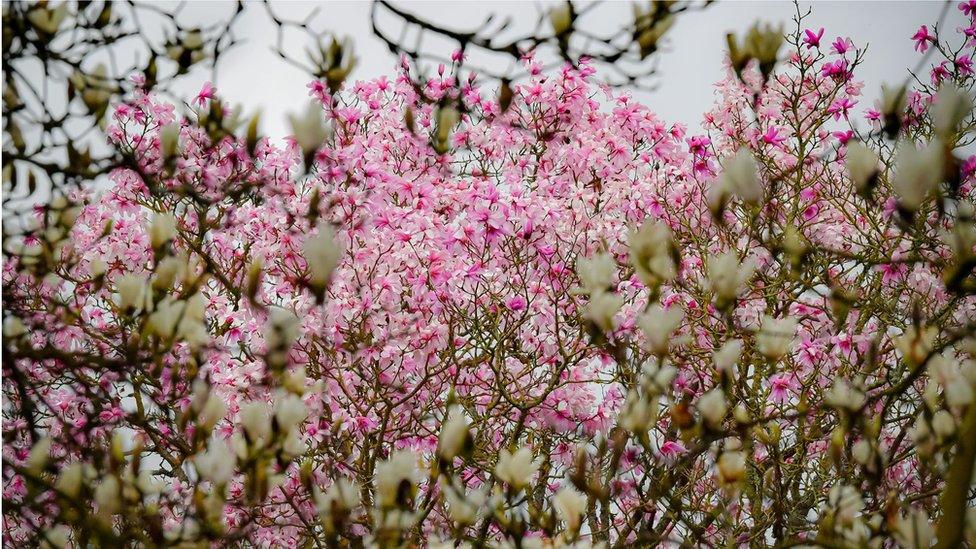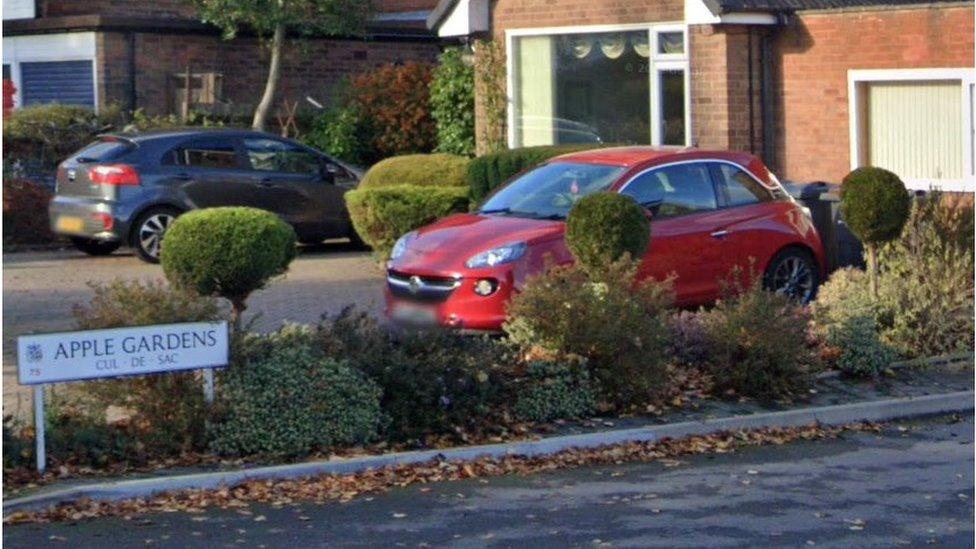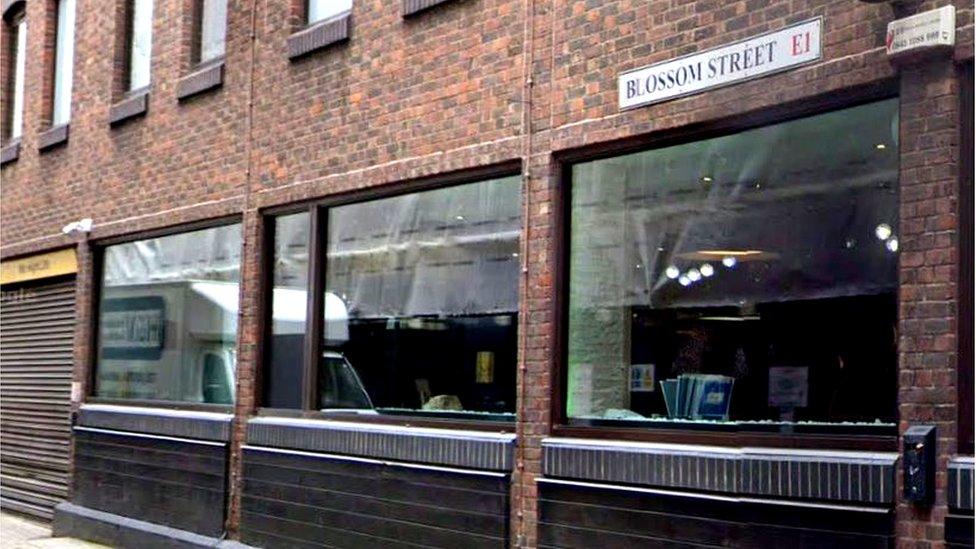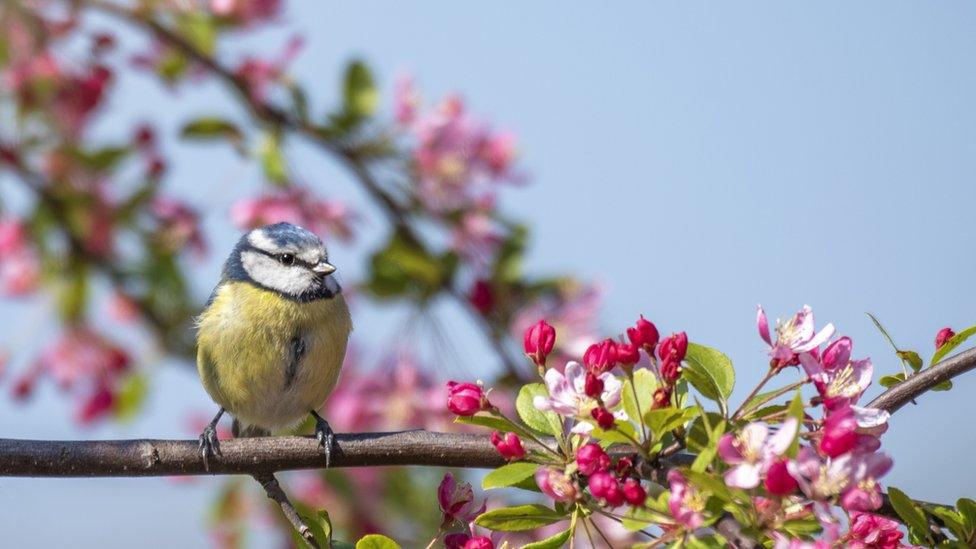Nature: Blossoming trees inspiring new street names study shows
- Published

Blossom orchards are increasingly unlikely to be found near their residential namesakes
Orchards and blossoming trees lost from the landscape are enduring through street names, a study suggests.
The proportion of place names linked to blossom has doubled in the past century, despite a loss of more than half of orchards in that time.
The National Trust suggests the phenomenon shows an ongoing connection to blossoming trees.
London, Plymouth, Nottingham and Newcastle all have blossom gardens aimed at returning trees to cities.
The study found that of the 912,000 place and street names recorded in survey areas across England and Wales, about 6% are associated with blossom, including terms like orchard, apple, petal, bloom, as well as grove and copse.
That compares to 3% of place names in 1900.

Gone scrumping? A car parked in Apple Gardens, Sutton Coldfield
At the same time, more than half of traditional orchards have been lost since 1900, leaving just 4,017 hectares (9,926 acres) still growing today, the National Trust said.
The places are more likely to be near a lost orchard than a surviving one. The National Trust calls them "fossil blossoms" and says they could point a way to bring back fruit trees to local areas.
Prof Matthew Heard, from the trust, said: "They are like imprints of the past.
"This fossil blossom is an important part of our cultural memory."

Blossom Street in Spitalfields, east London, not living up to its name
Blossom gardens
London: The first dedicated blossom spaces were created at the Queen Elizabeth Olympic Park with 33 trees, including cherry, plum, hawthorn and crab apple, representing the capital's 32 boroughs and the City of London. The site also commemorates people who died in the coronavirus pandemic and honours key workers.
Plymouth: A blossom half-circle was planted at Devil's Point on the South West Coast Path, where people wave off those heading out to sea on naval operations. Hardy tree species able to withstand harsh coastal weather were chosen, and blackthorn and other native wildflowers were also planted.
Newcastle: A double avenue near a lake at Exhibition Park, on the outskirts of Newcastle includes 26 ancient varieties of the cherry blossom tree Prunus 'Tai-Haku'.
Nottingham: Lenton Recreation Ground received 28 ornamental mature cherry trees and another 20 ornamental semi-mature cherry trees were planted at St Mary's Rest, creating a peaceful sanctuary away from the liveliness of the city.
Manchester: Blossom trees were planted and a city-wide trail called Bloomtown was launched, which encourages people to discover 30 blossom locations across the city.
New blossom spaces in Birmingham, Leeds and Swindon were planted over 2022 and 2023, while further blossom trees are due to be planted in Belfast, Durham and Cardiff and a blossom garden is about to open in Coventry as a City of Culture legacy.

The National Trust says these places are more likely to be near a lost orchard than a surviving one

Listen to the best of BBC Radio London on Sounds and follow BBC London on Facebook, external, X, external and Instagram, external. Send your story ideas to hello.bbclondon@bbc.co.uk
- Published31 March 2024